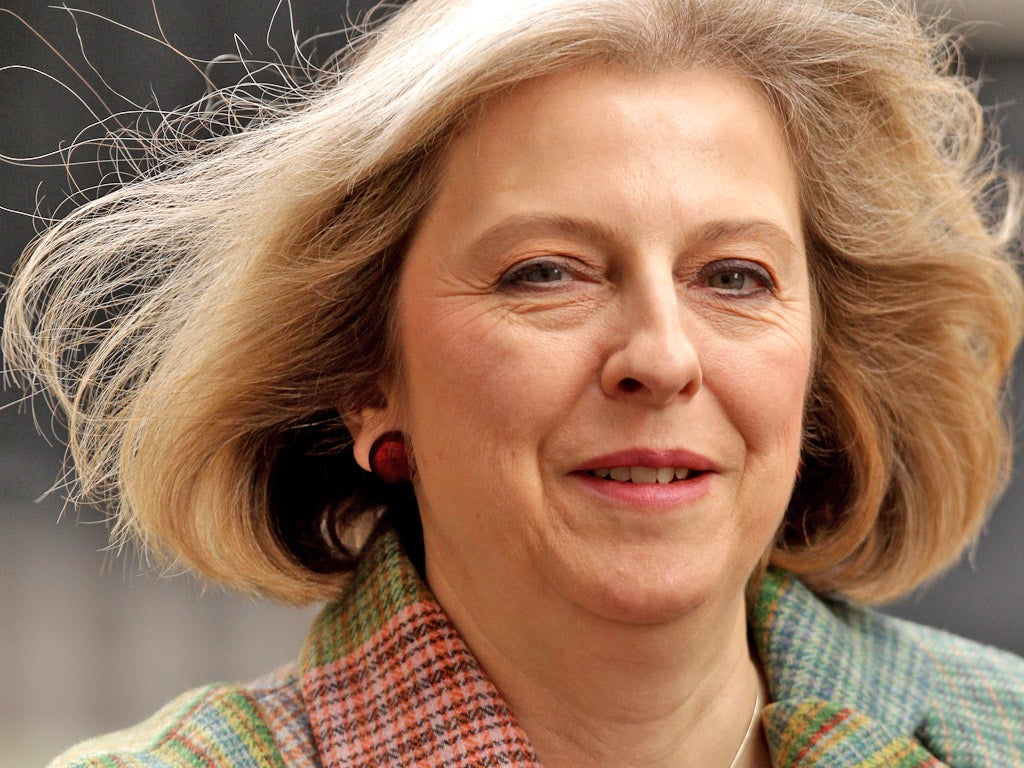Home Office rebuked for 'highly selective' drug-seizure figures

Your support helps us to tell the story
From reproductive rights to climate change to Big Tech, The Independent is on the ground when the story is developing. Whether it's investigating the financials of Elon Musk's pro-Trump PAC or producing our latest documentary, 'The A Word', which shines a light on the American women fighting for reproductive rights, we know how important it is to parse out the facts from the messaging.
At such a critical moment in US history, we need reporters on the ground. Your donation allows us to keep sending journalists to speak to both sides of the story.
The Independent is trusted by Americans across the entire political spectrum. And unlike many other quality news outlets, we choose not to lock Americans out of our reporting and analysis with paywalls. We believe quality journalism should be available to everyone, paid for by those who can afford it.
Your support makes all the difference.Home Office ministers faced a fresh crisis last night after being rebuked for manipulating drug-seizure figures in an apparent attempt to generate good publicity for the embattled UK Border Agency.
Sir Michael Scholar, the chairman of the UK Statistics Authority, condemned the department for a "highly selective" briefing to journalists, which claimed that the amount of heroin and cocaine detected at ports and airports had soared – just days before properly audited figures showed seizures had fallen.
The row erupted as Brodie Clark, the former head of the border force, renewed his public battle with Home Secretary Theresa May, accusing her of destroying his reputation and hitting back at suggestions he had gone "rogue" in secretly relaxing passport checks.
Mr Clark, who resigned after four decades' service at the Home Office last week to pursue a case of constructive dismissal against the department, told the House of Commons Home Affairs Select Committee that Ms May misled MPs by telling them he had exceeded his powers.
His boss at the UKBA, Rob Whiteman, who initially suspended him, told the committee that he was being disingenuous in his version of events.
The marathon hearing ended without Mr Clark landing a wounding blow on Ms May, but a picture emerged of an immigration service still struggling to cope with the pressures it faces. Last night, the Home Office was challenged by MPs to release full details of emails and memos that would clarify the conflicting accounts in the controversy.
Meanwhile, Sir Michael generated still more problems for the Home Office yesterday with his rare intervention, which came after crime reporters were told that more cocaine and almost double the amount of heroin were detected between April and September of this year than in the whole of the previous 12 months. They held the briefing on 4 November for publication three days later.
But the department's official Statistical Bulletin showed the amount of heroin seized in England and Wales had actually halved in 2010-11, compared with 2009-10, while the amount of cocaine was down by one-quarter. In a letter to Damian Green, the immigration minister, Sir Michael warned that the publication of the figures broke Whitehall rules on the handling of statistics and ran counter to the ministerial code. He said the incident could be "highly corrosive" for public trust in statistics.
Join our commenting forum
Join thought-provoking conversations, follow other Independent readers and see their replies
Comments